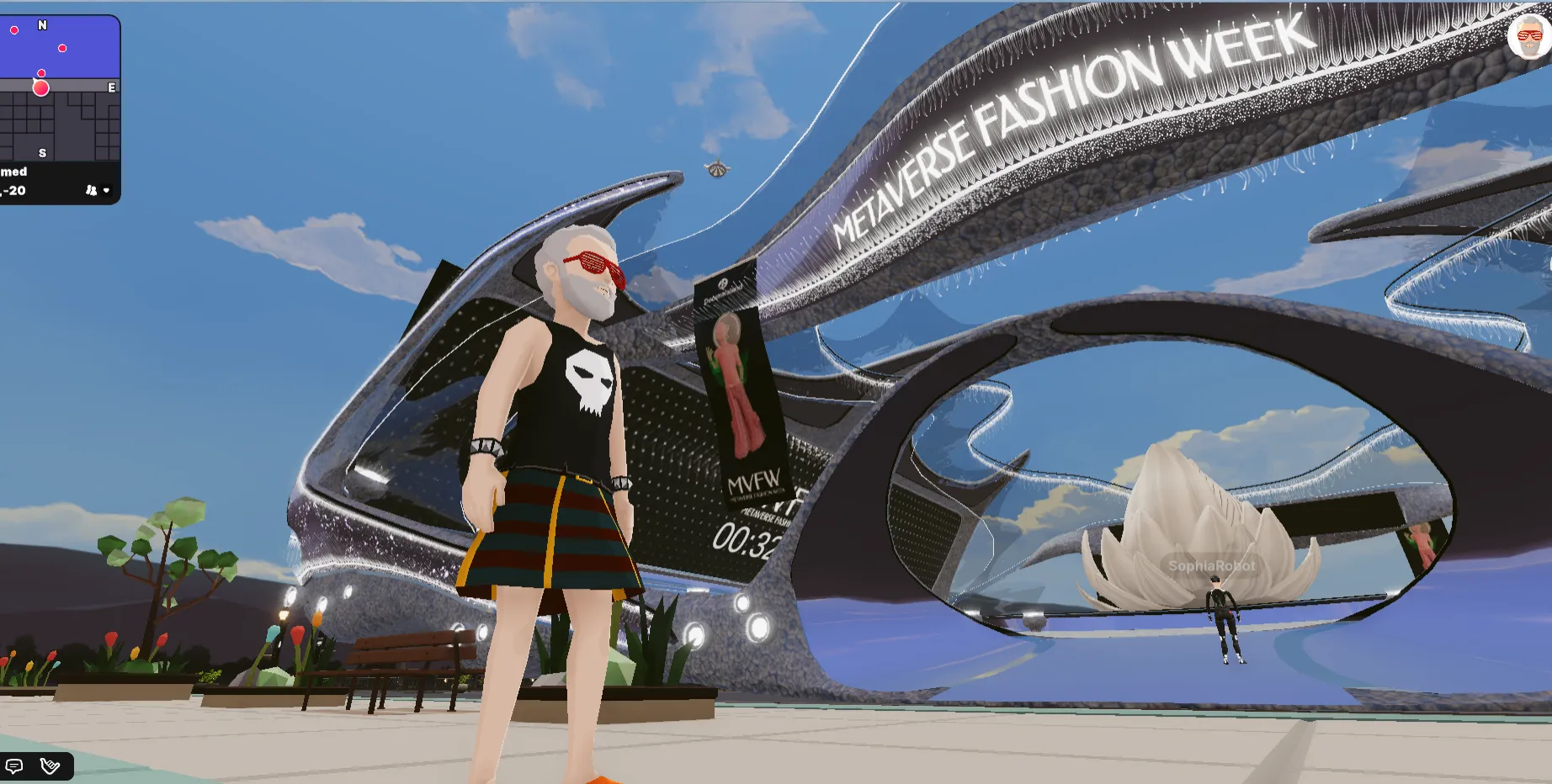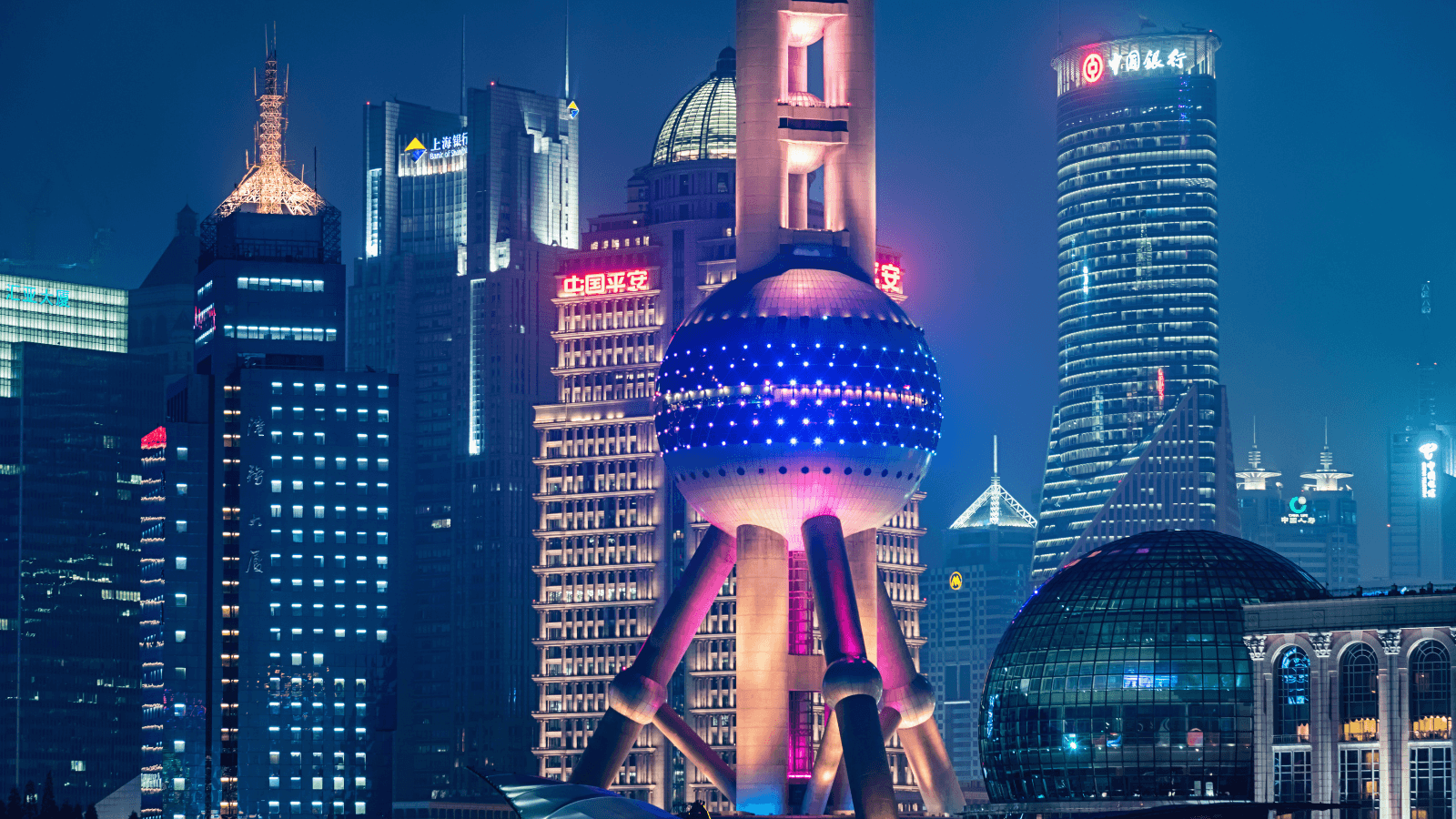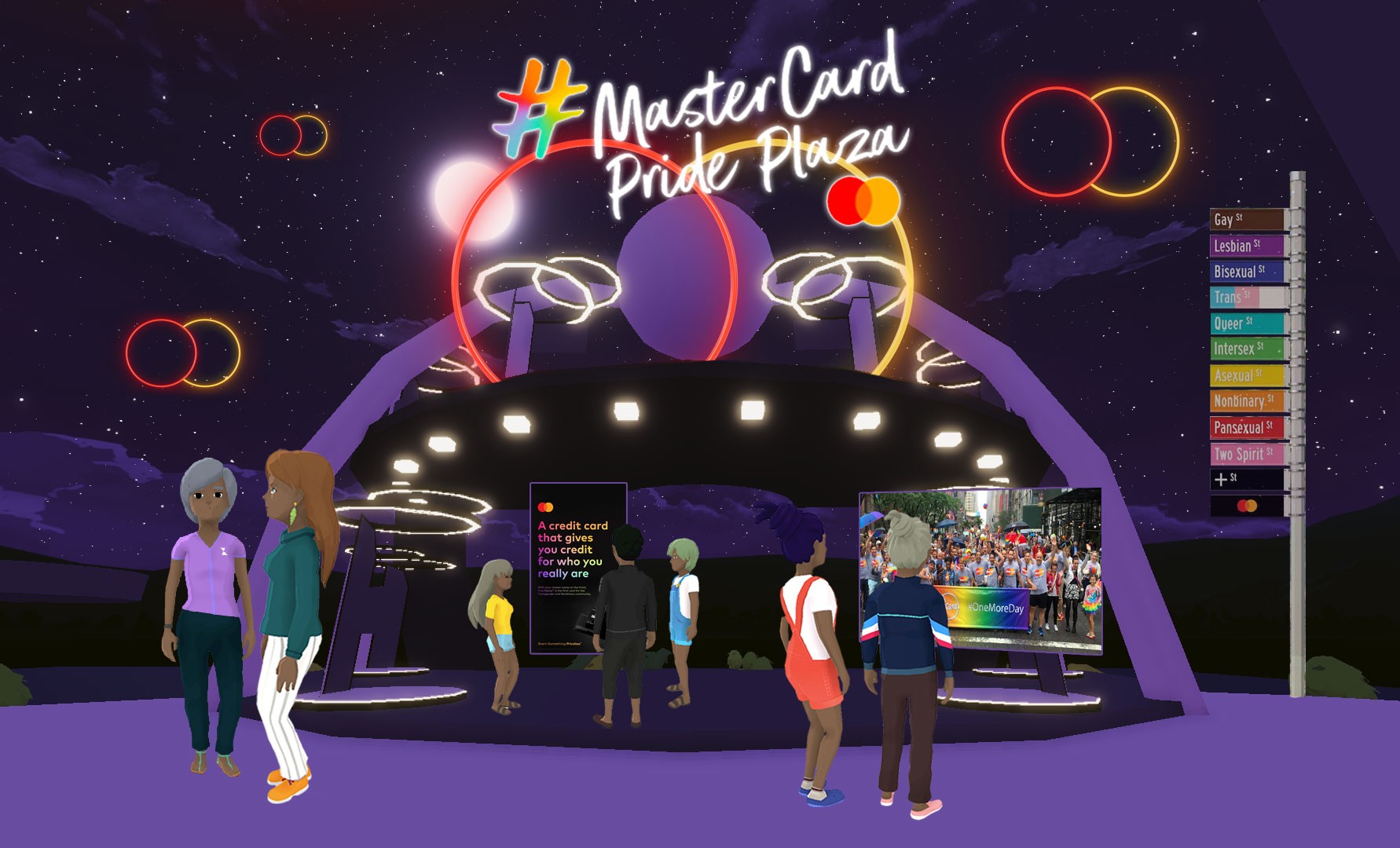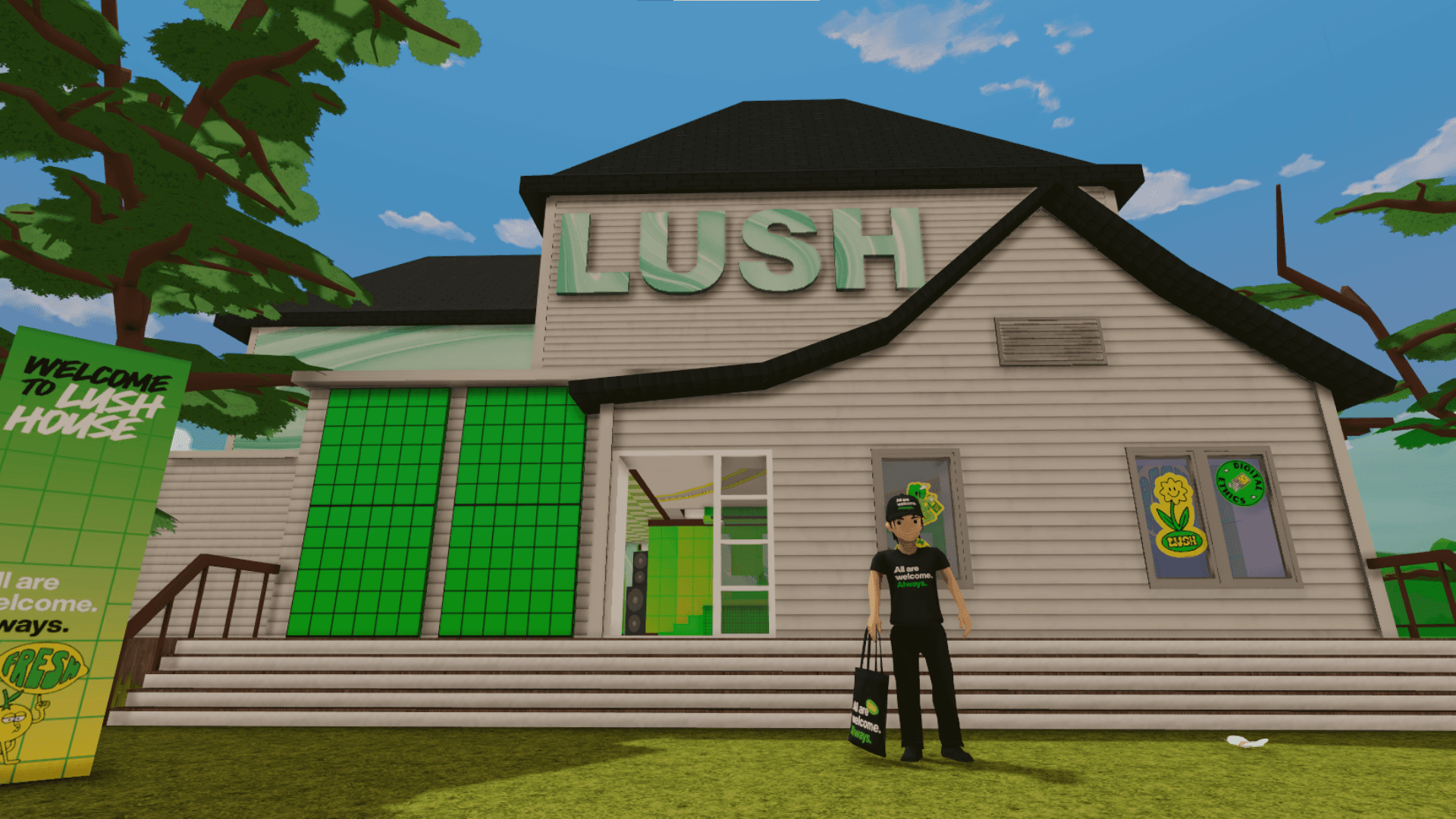العودة إلى المدونة
How High-Fidelity Metaverse Experiences Are Redefining Brands' Digital Presence
29/08/2023
Callum Moates
The metaverse is a revolutionary 3D digital realm offering users an immersive experience where they can actively engage with virtual environments rather than passively scroll through 2D web pages. This burgeoning digital frontier is compelling brands to rethink their online strategies, moving beyond traditional platforms to create a more interactive and dynamic presence. The metaverse's potential lies beyond its novelty, with its ability to foster deeper and more tangible connections between brands and consumers. A vital element of the metaverse enabling these experiences is its capacity to create high-fidelity metaverse environments—rich, detailed, and realistic virtual interactions transforming brands' digital identities and redefining experiential marketing in the digital age.
Brand engagement
There's been a palpable shift in consumer behavior in recent years, with a growing appetite for more immersive digital experiences. Today's digital-savvy consumers seek experiences that are interactive, engaging, and almost tangible, even if they exist solely in the virtual realm. Capgemini’s survey revealed that 58% of consumers stated that ‘immersive experiences,’ like the metaverse, could be highly impactful during their product or service purchase journey, making it an ideal space for brands to establish a presence.
The metaverse’s high-fidelity environment enables brands to design unique, interactive environments that resonate with consumers. It's not just about showcasing products or services; it's about creating holistic experiences that users can step into, interact with, and be a part of, like integrating games and challenges into branded experiences that help drive consumer engagement. For instance, using Roblox Studio, Nike created an immersive space called ‘Nikeland,’ which offers a virtual store and sporting games for visitors to engage with, which generated more than 31.5 million visits.
Another prime example of brand engagement in the metaverse was witnessed during the Metaverse Fashion Week 2023. MVFW partnered with the virtual reality platform Decentraland to present a series of live runway shows, entertainment experiences, shops, and marketing activations that were launched in collaboration with luxury fashion brands such as Coach, BOSS, Dundas, Tommy Hilfiger, Dolce & Gabbana, and Vivienne Westwood. Attendees worldwide could access designer wearables, engage with other participants, and even attend a virtual party. Such experiences democratize access to events and help foster a deeper connection between the brand and its audience.

Image source: Vogue
Visual realism and immersion
The metaverse aims to create a digital space enhanced by high-fidelity graphics and advanced technologies. But how do these elements elevate the metaverse experience, and what implications do they hold for brands?
High-fidelity graphics refer to visuals rich in detail, clarity, and realism. These graphics build environments almost indistinguishable from reality when created with advanced technologies like real-time rendering, ray tracing, and spatial audio. This technological evolution means that metaverse landscapes can have lifelike precision, avatars can mimic human nuances, and users can experience tactile and genuine interactions. For brands, this level of realism offers an unparalleled opportunity to showcase products in immersive virtual showrooms, conduct lifelike virtual try-ons, and create memorable experiences that resonate deeply with consumers, ultimately driving engagement and loyalty.
Here are a few ways realistic environments in the metaverse impact a brand’s customers:
1. Define brand perception
In the metaverse, brands can fully customize virtual spaces to reflect their narrative and vision, allowing for a deeper connection with the audience. A prime example is Italian car manufacturer Lancia's debut into the virtual world at the 2023 Metaverse Fashion Week. Lancia showcased a virtual showroom inspired by its Milan showroom in Via Gattamelata, which introduced its new ‘Corporate Identity.’ The showroom mirrored Lancia's new brand by customizing the virtual space to reflect its new logo, Italian architecture and design, and elegant colors.
2. Enhance user engagement
The allure of high-fidelity graphics in the metaverse is undeniable for brands to showcase their products. Recognizing this, the global online fashion marketplace Farfetch has harnessed virtual try-on technology to elevate the shopping experience for luxury watches, shoes, jewelry, and makeup, offering second-to-reality trial experiences. During a 14-week analysis in 2023, Farfetch observed a 47% increase in site visits to watches equipped with virtual try-on functionality. Such initiatives by brands like Farfetch enhance user engagement and allow consumers to interact with products as they would in reality, bridging the gap between the digital and physical realms.
3. Offer immersive experiences
The metaverse can create visually stunning experiences that pique user interest and create memorable experiences compared to 2D web interfaces. For example, The Voice TV series launched a virtual immersion activation on Decentraland where attendees could engage in games or a virtual audition process mimicking the real-life experience. The activation saw fans spending 49 minutes per session, generating engagement that was 13 times higher than social media platforms.

Virtual events
With its expansive virtual landscapes and interactive capabilities, the metaverse has emerged as a game-changer for brands looking to host events, conferences, and product launches. No longer confined to physical spaces, brands are leveraging the metaverse to create experiences that are both immersive and accessible.
Brands are increasingly setting up virtual venues within the metaverse, with stages, audience areas, booths, and more to mimic the feel of real-world events but with added layers of interactivity and engagement. According to a report from EventX, in 2022, 70% of businesses planned to host hybrid or virtual events in the coming 12 months, highlighting the growing demand for virtual experiences across industries. Brands can tailor events in the metaverse to fit their aesthetic, with customizable environments, lighting, and soundscapes, enabling them to convey their narrative and vision.
Here are some advantages of virtual events in the metaverse:
Global accessibility: The global appeal of the metaverse is evident in its estimated growth, with its market value on track to reach around $800 billion in 2024, as projected by Bloomberg, and its user base set to reach nearly 5 billion by 2030, per Citi’s Metaverse and Money report. With such rapid expansion, the metaverse can offer unparalleled global accessibility, allowing attendees worldwide to join events without traveling.
Reduced Costs: Traditional events often come with hefty costs, including venue rentals, logistics, catering, and more. Virtual events in the metaverse sidestep many of these expenses. While there's an investment in setting up the virtual space, the overall costs can be significantly lower, especially for recurring events.
Enhanced interactivity: The metaverse offers interactivity levels that traditional online events can't match. Attendees can engage with products in real time, participate in interactive sessions, and even influence the course of the event. For instance, EventX, a leading event technology company, has acquired virtual land in The Sandbox, to create an event-focused digital world where companies can organize events for attendees to explore virtual booths, engage with 3D product demos, and network with avatars of other attendees.
Data collection and insights: Virtual events provide brands with a wealth of data. Brands can track attendee movements, interactions, session times, and more. This data is invaluable for understanding audience behavior, preferences, and areas of interest, allowing brands to tailor future events and product offerings more effectively.

Case Studies of Successful Metaverse Branding
LUSH's 2023 SXSW house in the metaverse
LUSH aimed to virtually replicate their 2023 SXSW (South by Southwest) house, making it accessible to all. Partnering with Landvault, they created a gamified twin of the real-life space in Decentraland, complete with a dance floor, quests, and branded wearables. This space, set on a 2x2 Decentraland parcel, allowed users to engage in activities and games like a Bath Bomb hunt. The experience offered virtual wearables with inclusive messaging to resonate with the brand’s values and gaming quests, revealing product information and seamlessly telling the brand story. The activation also effectively displayed their new product, the Bath Bot speaker. These elements positively impacted the customer experience and increased engagement.
Hershey's metaverse holiday celebration
Targeting audiences in India and the Philippines, Hershey sought to create a unique activation to drive engagement during the holiday season. With Landvault's expertise and support, they crafted a gamified Decentraland experience called the ‘Hersheyverse.’ This space featured iconic elements like the giant Hershey Kiss and branded shops. Users could embark on a quest up the Kiss, learn about holiday traditions across cultures, and earn rewards by completing games. The activation also created an opportunity to create and share user-generated content, where users could snap a selfie atop the giant Kiss and share it across social media.
Unilever in the metaverse
A global consumer goods giant, Unilever recognized the metaverse's potential and took proactive steps to integrate it into its branding strategy. Unilever’s deodorant brand, Rexona, also known as Degree and Sure, launched a deodorant for people with disabilities in 2021. Alongside the launch, the brand created a virtual marathon on Decentraland called ‘Degree Metathon’ for anyone, regardless of physical abilities, to participate in. In 2022, the conglomerate’s Magnum brand also launched a virtual exhibition in Decentraland that showcased artwork from artists and designers collaborating with the brand. The feature also showcased a virtual vending machine that let individuals order an ice cream and receive it physically. The activation enabled Unilever to create an innovative and creative experience that led to new brand-consumer interactions.

Conclusion
The metaverse, powered by high-fidelity experiences, revolutionizes brand engagement and digital presence. Offering unparalleled immersion and realism through virtual fashion shows to lifelike virtual showrooms, it's reshaping how brands interact with audiences and build connections. Virtual events in the metaverse also provide global access, cost savings, and rich data and insights for brands to leverage. Successful implementations by brands leading in the space, like LUSH, Hershey, and Unilever, highlight the metaverse's potential for brands. In this evolving digital landscape, embracing the metaverse is crucial for brands aiming to lead in digital engagement.
Are you a brand looking to capitalize on the metaverse’s enhanced digital customer experiences? We can help you build, scale, and monetize your brand experiences in the metaverse. Get in touch with us!
29/08/2023
Callum Moates
اشترك في النشرة الإخبارية الشهرية لدينا
حول LandVault
لاند فولت هي أكبر منشئ في الميتافيرس مع أكثر من 100 مليون قدم مربع من العقارات الافتراضية، وأكثر من 120 مبدعًا بدوام كامل، وقرابة 300 مشروع منجز. لقد ساعدنا العلامات التجارية على البناء والنمو في بيئات الألعاب منذ عام 2017 وفي الميتافيرس منذ عام 2021.
